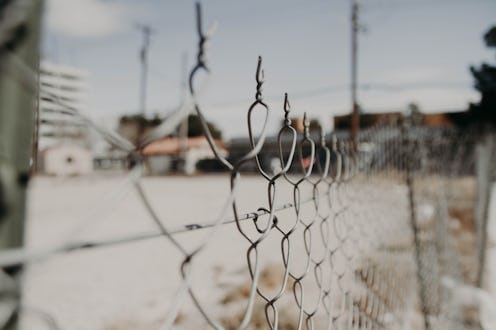News
This Is The Huge Step California Is Taking To Try To Make The Jail System More Fair
On Tuesday, Governor Jerry Brown signed a bill that will eliminate cash bail in California, the first state in the country to make such a move. Although many social justice advocates condemn the practice of requiring bail, they haven't necessarily backed the legislation. The ACLU first gave and then withdrew its support after arguing that new adjustments to the bill allow judges to discriminate against defendants.
Bail is meant to ensure that people accused of serious crimes show up to their court proceedings, per a congressional report. If you're arrested, you'll often be required to pay a sum of money in order to be released before your court date, frequently in cash. You'll get that money back if you show up for every court date like you're supposed to.
The system has been heavily criticized. According to The New York Times, around 60 percent of those who are currently in jail (which is around 2.3 million people, per the Prison Policy Initiative) haven't yet been convicted of a crime: They're waiting for decisions to be made about their cases. Many will be behind bars until their court dates just because they can't afford bail.
Even bail sums that are considered comparatively low can often be difficult for people to acquire. The Times reports that a third of nonfelony cases are given bail of $500 or less in New York City, and that only 15 percent of the accused can put that sum together. In 2015, Sandra Bland died in jail after being unable to pay her $500 bail.
California's new bill aims to prevent low-income people from getting stuck in jail just because they can't afford bail. Decisions about whether to hold the accused in custody will now be made by local courts using an algorithm that they each create (it will be based on "how likely they are to show up for their court date, the seriousness of their crime, and the likelihood of recidivism," according to NPR). Most people accused of committing nonviolent misdemeanors will be released within 12 hours.
"Today, California reforms its bail system so that rich and poor alike are treated fairly," Gov. Brown said in a statement on Tuesday. Senator Robert Herzberg, one of the legislation's authors, added: "Our path to a more just criminal justice system is not complete, but today it made a transformational shift away from valuing private wealth and toward protecting public safety."
But not everyone thinks that this new bill is equitable. The ACLU originally co-sponsored it but backed out, claiming that new changes give judges too much power in deciding who gets to leave jail. "We are concerned that the system that's being put into place by this bill is too heavily weighted toward detention and does not have sufficient safeguards to ensure that racial justice is provided in the new system," a spokesperson for the ACLU told NPR.
Silicon Valley De-Bug, another organization that originally supported the bill but changed its mind, said that the legislative changes constituted a "bait-and-switch." Co-founder Raj Jayadev told The Sacramento Bee, "They took our rallying cry of ending money bail and used it against us to further threaten and criminalize and jail our loved ones."
California's new law will take effect in October of 2019.
